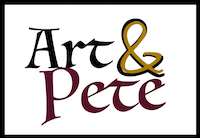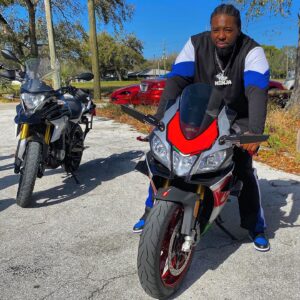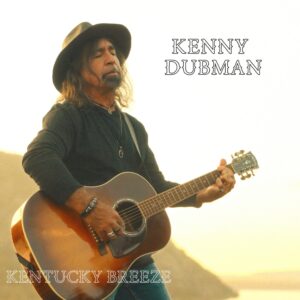
Photo by Jonathan Beckley
It’s been 15 years since brothers Ben and Sam Potrykus linked with Matt Sisto of Spirit Kid and Chris Mara of Babydriver to form the self-styled “DIY dreamfolk collective” Christians & Lions. In the time since, the group has expanded and contracted—oftentimes including collaborators on accordion, trombone, viola, and other toys, and sometimes simply consisting of Ben, who has also played with Bent Shapes and Receiving End of Sirens.
With a decade having passed since the last Christians & Lions release, the veritable underdog super group just returned with a new full-length, Young Familiar, which it’s dropping in typical underground fashion with a studio bash in early November. We asked what it’s been like to get back on the do-it-yourself horse on a scene that has shifted dramatically.
It’s been 10 years since Christians & Lions put out an album. Was this a pick right up where you left off type of ordeal?
I wouldn’t say that, but it definitely developed organically. My last band, Bent Shapes, started at the end of 2008 and played its final show in December 2017, and I suddenly had time to fool around with some more low-key pieces I’d worked on here and there during Bent Shapes’ run. I started playing these out solo or with a couple friends as Young Familiar. After recording the songs, I realized that three or four of my friends who were playing on the recording and live were folks who’d been involved with C&L, and I started to feel like it was silly to call this project anything else. With everyone’s blessing, Young Familiar became the album title and the band was credited as Christians & Lions.
You’ve played a whole lot of eclectic spaces and venues—from basements to museums—with a smorgasbord of artists. What are some of the most random, off-the-beaten path places that you have performed?
There was a pizza place called TJ’s in Allston where Whole Heart Provisions is now, and I played a show with my friend Shane of Many Mansions there in 2007 or so. It was pretty absurd; there was no PA and no real room to play—we just set up a bass drum and some electronics in this 10’ by 8’ little rectangle of space and just went for it. We changed our band name every show and I think we were called Monday Night Football or My Chemical Snowpants that day. People had to figure out how to get around us to order, but everyone was very cool about it.
One of my other favorite shows was when Bent Shapes (then playing as Girlfriends) was on tour with Colleen Green, and we played a bowling alley called Memory Lanes in Minneapolis. The stage was set up across two middle lanes, but people could still bowl around you. I like bookstores and record stores for shows, too. I’ve still never played a laundromat, which is a goal of mine. I’d also like to play a milk bottle building—either the Hood Milk bottle in the Seaport in Boston or the abandoned Milk Can on I-295 in Manville, Rhode Island. Hit me up if you can make it happen!
What have been some of the biggest changes on the venue front since you started playing in the Boston area? Negatives, losses, sure, but any positive developments as well?
Some of the big changes for me are due to my personal situation. I don’t know many people in their early 20s anymore, and those are the folks that tend to keep the basement/living room scene alive, so I’m way out of the loop with respect to DIY venues. That said, I think one of the most positive developments of the past few years is that some of the people who were previously throwing a lot of house shows figured out how to form nonprofits or otherwise secure funding for all-ages show spaces in the area. Ian McGregor is working on Deep Cuts Deli; my brother Sam, Dan Shea, and all the hard-working people with Boston Hassle and Brain Arts are managing Dorchester Arts Project and paving the way for young people from all over Boston to learn how to make events happen in a way that is sustainable and brings everyone in. It’s a really fantastic time to be an artist in New England. Also, everyone come visit Providence for a show—we’ve got dope venues and ample parking down here.

A lot of your work has been with big bands, sometimes involving a number of musicians, in-house as well as guests. I don’t mean this as a capitalist menace, but when there are a couple of bucks on the table, as little as it may be, how does a group go about splitting that up these days? Any advice for kids just starting out?
It’s different for everyone, and it depends on your goals. Do you want to do music as your career? Well, I’m not the person to give you advice. I had some opportunities to pursue that path and I consciously decided against it at those points for personal reasons. But I can tell you where I’m at right now! While money tends to make me uncomfortable, talking about it is necessary if you want transparency and to keep everyone fairly happy. For this project, I’ve funded all the recording and production expenses using savings from work at my day job, and I’ve paid my friends for their art and other contributions (when they let me). I split all performance profits equally among whoever played the show. Sometimes it’s like, $8, other times $25. Often some of us will throw our take back in so the person who drove the farthest has gas money (some of us live in Connecticut, New Hampshire, etc. now). When it comes to publishing rights and royalties and all that, I’m signed up with ASCAP and SoundExchange, and I write the music and lyrics for the songs, so I recoup some of my expenses from that and from selling any physical releases I’ve had printed up.
I’m probably still spending more than I’m making, but fuck it. I don’t really see it as any different as people putting money they’ve saved towards a gaming console or some real nice clothes they’ve been wanting. You have to figure out what’ll make you happy, make sure you’re not fucking anyone over, and go for it, if you have the means.
You’re doing some soundtrack and TV work on the side. How did you break into that? Anything especially interesting on the horizon on that front?
Everything with TV and movies came about as a result of previous record deals with Bent Shapes. We were with Ghost Town Licensing, which I think was a result of our relationship with Father/Daughter Records (that actually continued through our release on Slumberland because Jessi from F/D and Mike from Slumberland are amazing people who are focused on community rather than competition). I am frighteningly unaware of what, if any, contractual relationships were at play there, so I can’t really help folks on that front. There’s nothing on the horizon in that department, partly because I’m already working on another album and I don’t like getting off of a work shift full of reading documentation and then going home to read mock licensing contracts while my guitars gather dust. I will recommend The Future of What podcast while we’re on this topic, though, which involves Portia Sabin (the President of Kill Rock Stars—one of the greatest indie labels ever) talking about all of this music business stuff in a very approachable way.
Your new record takes on the “occult,” as well as “radical politics” and “queerness.” Can you give us a glimpse of what you consider to be the intersection of those themes?
Hell yeah. For me, the common thread between these themes is in existing within liminal spaces. Personally, as someone who is examining their own gender but generally presents and is read as a man, currently in a relationship with a woman, my queerness might not be readily perceived. Some would call assumptions made about my sexuality erasure, others might say I have a certain amount of privilege because my queerness is ignored. As a socialist with anarcho tendencies, my support for certain stop-gap policy measures or legislation or candidates will cause folks I’m debating with to assume that I’m a “liberal,” rather than a radical. This can be helpful in coalition-building with people who are left of center, but can also result in locking horns with more moderate Democrats.
It may help me find points of entry when talking to right-leaning folks (“I mean, I dislike that politician, too, but for different reasons—let me explain”), and also results in some truly pitched battles with bootlicking crypto-fascists. The mystic-coined term “dweller on the threshold” comes up in the lyrics on this album, on what was initially the title track, “Is To As Are To,” a reference to similes on standardized testing. Some people may have heard of it via popular culture—it’s a term used in Twin Peaks, an RPG game, a Van Morrison song, and a documentary thriller about sleep paralysis—but what I was getting at was the feeling of being othered via inscrutability, and occupying different places within different worlds.
The name Young Familiar was actually an attempt to invoke the concept of a sort of ancient chthonic energy taking a new form (there’s a reason the Babadook has become a queer icon). The sense of existing across categories is a position of weakness at some times, and at others, strength is where I see the intersection between the personal and the political generally, and occult mysticism (particularly in relation to chaos magic and neopaganism), radical politics, and queerness specifically.
CHRISTIANS & LIONS YOUNG FAMILIAR TAPE RELEASE PARTY W/ AUDREY RYAN AND HELENOR. FRI 11.8 AT PINK NOISE STUDIOS, 15 WARD ST., SOMERVILLE. MORE INFO AT CHRISTIANSANDLIONS.COM.



Latest posts by DIG STAFF (see all)






